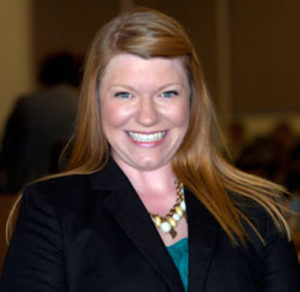As news of the COVID-19 pandemic spread, many Fort Worth public school teachers began their 2020 Spring Break unsure about how the school district would handle the remainder of spring classes. When teachers did return to their respective classrooms, it was to grab their school supplies for an indefinite period of virtual learning. School district leaders urgently distributed tablets, laptops, and hotspots to children in underserved communities. After a few weeks, more than 82,000 students were equipped to finish the spring semester online.
By May, many students at OD Wyatt High School were disengaging from the school district’s online learning programs, according to an audio recording that was given to me by a confidential source.
“A lot of kids logged on and never got on again,” one teacher said.
The socioeconomic realities of the predominantly Black and Hispanic school meant that many parents were struggling to deal with lost work, a deadly pandemic, and the newfound challenges of educating children from home.
If the students “are making progress,” one teacher said, “I feel silly failing these kids when I don’t know what is going on at home.”
One OD Wyatt vice principal emphasized the challenges facing homebound students.
“Some kids answered the phone on April 10” and never answer again, the school leader said. Think about challenges “when you give a pass, fail, or incomplete,” the vice principal said. “Think about accessibility to the internet. Think about at-home support for the students. Think about additional supports they may not have. Completion or noncompletion of [the school district’s online learning programs] should not be the final determinant of the final grade. The teacher is the one who determines the grade. Make sure that you are keeping all of this in mind as you give grades to your students.”

Photo by Edward Brown.
OD Wyatt principal Howard Robinson repeatedly told his teachers to show “grace over grades.”
He said, “I’m not saying to give anything away. There will be some who have done nothing.”
Three former or current OD Wyatt teachers, including the one who provided the recording, said that Robinson implicitly and explicitly told teachers to alter grades (including from fall of 2019) irrespective of the student’s efforts to log onto the online learning program.
In the recording, a teacher asked for guidance on how to grade students who did nothing.
Robinson reminded the teacher that other teachers were “grading with grace,” adding that “if the kid gets a failing grade, we are doing them an injustice. We are not using the same mindset as when kids came to us every day from period to period. One-third of kids are working 15 hours online per week. We take that into consideration.”
Sensing resistance from a different teacher during that same recorded meeting, Robinson stated his intentions.
“You are doing a disservice to these students by having a high failure rate,” he told the group of teachers. “I’m asking you to grade with grace. This is a different day and age. If you don’t have documentation that you tried to contact [every parent], we are going to ask you to change the grades. How is it fair to give a failing grade? If you do not have documentation that you talked to someone, then [the grades] won’t stand. If you have a high fail rate, that’s on you.”
If you could bump the student’s grade up to a 55%, that would bump him to a 70% for the semester, one OD Wyatt vice principal suggested during the recording.
The teacher who provided the recording said she does not know if her grades were ultimately changed without her permission. Questions forwarded to Robinson through the school district were not returned.
Fort Worth school board trustee Ashley Paz said, “Things have changed so drastically that the definition of what ‘failing’ looks like is very different than a year ago.
“Everyone, regardless of race, class, or economic status, is in survival mode,” she continued. “Adults are managing unprecedented levels of stress and trauma from struggling to maintain jobs, keep businesses alive, social isolation, losing loved ones, and even dealing with the long-term health effects of COVID itself. We would be remiss to believe that our children aren’t affected by these things as well. They are as much in survival mode as the rest of us, and while we still have to maintain high expectations for our kids and not allow COVID to become an excuse, we also have to understand that progress in learning is progress.”
ZIP codes served by OD Wyatt, she continued, are among the hardest impacted by the digital divide in Texas. Robinson, Paz continued, is “correct and proper” in the guidance that he issued to educators in extending grace to their students.

Photo courtesy of Texas American Federation of Teachers
Faced with ongoing societal disruptions related to COVID-19 and a segment of the population that is opting not to return to classrooms, school districts across the country are reevaluating how students are graded and how certain academic benchmarks are met. The Fort Worth school district’s Grade/Credit Recovery and Attendance Restoration policy has the stated goal of “ensuring fair and consistent opportunities for all students.”
When the everyday lives of students are fundamentally disrupted over an extended period of time, due to circumstances out of their control, it’s necessary that the district review and make temporary adjustments to existing local policy and guidance to ensure all students are positioned for success, the policy reads.
Under the new guidelines, which were issued on Jan. 13, students in grades 1 through 12 who did not earn a 70% through the “completion of assignments/tests” have the opportunity to redo assignments and tests in which a grade of 70% was not earned. Students who did not meet attendance requirements can have that requirement fulfilled by retaking failed tests.
Even with the flexibility provided by the Fort Worth school district’s new grading guidelines, the teacher who gave me the audio recording and was employed at OD Wyatt during the 2020 spring and fall semesters said school administrators pressured teachers to fudge grades rather than have students retake tests and courses.
“You should hold the student responsible and not do them favors,” the confidential source said.
*****
The COVID-19 pandemic forced public schools, colleges, and universities to rethink or overhaul longstanding guidelines and practices. In a move that may boost student body diversity at Texas universities, Texas A&M University, the University of Texas at Austin, and other higher education institutions in the Lone Star State temporarily shelved SAT and ACT admission requirements. With test sites shuttered throughout last summer and the general chaos surrounding the pandemic, leaders at post-secondary institutions saw the move as necessary and fair.
Early into the pandemic, the Texas Education Agency (TEA), the governing body of public schools, canceled the State of Texas Assessments of Academic Readiness (STARR) test through June of 2020. In July, Gov. Greg Abbott waived the state requirement that students in grades 5 and 8 pass the STARR test to respectively graduate to middle and high schools.
Speaking on the waiver, House Speaker Dennis Bonnen said, “During a time of great uncertainty, one thing is indisputable — we cannot allow an entire generation of Texas students to be disadvantaged by the unprecedented disruptions this pandemic has caused in our education system. Not only will this approach do a great deal to reduce the ‘high-stakes’ burden of testing in a school year already complicated by this pandemic, it will hold schools accountable for providing a high-quality education while equipping teachers and parents with the information they need to make certain students are learning and remain on the path to educational success.”

Photo courtesy of Facebook.
The nonpartisan policy institute Center for American Progress is calling for a national reevaluation of the of role standardized testing during a largely uncontrolled pandemic that has caused more than 500,000 deaths in the United States.
“Parents, educators, administrators, and policymakers need more information about how students are doing and being served, not less,” the institute wrote in September. “These data need to capture multiple aspects of student well-being, including social-emotional needs, engagement, and conditions for learning so that families, educators, and local and state leaders can be responsive to the needs of all students.”
Annual assessments should not be waived, the article said, but standardized tests should provide “actionable information for administrators and policymakers who need these data to allocate resources that will support educational recovery.”
As many educational groups have warned, setbacks caused by COVID-19 have disproportionately hurt minority communities.
“Black, Latinx, Indigenous, and low-income students disproportionately lacked access to opportunity and high-quality instruction even before COVID-19 hit,” the Center for American Progress found. “Now, in the midst of the pandemic, they are more likely to experience the stressful impacts of the coronavirus outbreak and the economic recession it has helped to create. For example, parents of these students are far more likely to work in ‘essential’ positions, meaning that they cannot work from home and support their children’s learning. Students of color and low-income students are also more likely to feel the effects of lost income due to their parents’ job loss. Finally, they are more likely to experience the trauma of losing a loved one to the coronavirus.”
Child Trends, a research organization focused on improving the lives of children and youth, found that 29% of Latinx and 31% of Black households with children experienced three or more economic and/or health-related hardships as the result of the COVID-19 pandemic. Examples of hardships found in the study include unemployment, difficulty paying expenses, food insecurity, physical health problems, and symptoms of anxiety or depression, among others. Those hardships would have hit Fort Worth public-school families especially hard, given the district’s student demographics: 63% Latinx, 22% Black, and 11% white.
“A range of structural inequities and systemic barriers make it much more likely that Hispanic and Black families will experience not just a single, temporary stressor but an accumulation of multiple hardships — particularly during a period of economic instability like the COVID-19 pandemic,” Child Trends found. “Even among those with the same job, significant wage gaps rooted in discrimination mean that Hispanic and Black workers, on average, take home less money than white and Asian workers, making it more difficult to keep up with household expenses, including food and housing costs. Discrimination contributes to the tendency for Hispanic and Black individuals to receive less and lower-quality physical and mental health treatment and to experience greater barriers to accessing social safety net services.”
The research-based nonprofit NWEA found that, across the country in 2020, students in grades 3 to 8 performed similarly to same-grade students the year prior but around 5 to 10% lower in math. The slide may be even more pronounced among minority groups. Student groups that are especially vulnerable to the impacts of the pandemic are “more likely to be missing from” the data, the nonprofit found.
The lack of access to the internet, known as the digital divide, has compounded educational inequities in Fort Worth and across much of the country. During the early weeks of the pandemic in March and April, school leadership focused on providing Wi-Fi hotspots to underserved communities that did not have access to the internet. The nonprofit think tank Rand Corporation found that “30% of teachers in high-poverty schools reported that all or nearly all of their students had access to the internet at home, compared with 83% of teachers in low-poverty schools.”
Paz said that hesitation from Mayor Betsy Price and County Judge Glen Whitley added confusion to an already chaotic situation in March and April.
“At this time, we were in the beginning of a global crisis where districts received little to no support or expectations for timelines as to how long we would or could be closed,” she said. “The county and city did not want the district to make the call to move to online instruction for a definite amount of time. This left us with a lot of uncertainty and an inability to plan for the long term. This meant that many students were without devices, internet, or comprehensive instruction.”
No district was prepared to deploy technology to all of their students in such a short timeframe last year, said Steven Poole, executive director at the teacher union United Educators Association.
“Every school district, including Fort Worth’s, was scrambling to find tablets and hotspots,” he said. “There was a limited supply. That hamstrung school district from the get-go. Teachers saw four or five siblings having to share one computer or hotspot. For those families, the scheduling involved was a nightmare. Parents did their best to have that homeschool experience while they are trying to work themselves.”
The disparities in access to the internet are no longer acceptable, Poole said.
“If we are going to say that internet access is a vital part of work and school, then it should become a public commodity and not a private utility,” he said.
Abbott has made expanding access to broadband internet a top priority of the ongoing state legislative session.
In response to the COVID slide, the Dallas school district leadership lowered academic goals across several metrics in November. The Dallas school district used the Measurement of Academic Progress (MAP) test to determine that 30% of Dallas public school students lost learning in reading and 50% of students lost learning in math. The MAP test also found stark disparities between minority and white students. Black students “met grade level” requirements in math 7.5% of the time in fourth grade compared with 42% of white students meeting that fourth-grade benchmark.
School district trustees across the country set benchmarks for their campuses. In November, Dallas school district board members voted to lower standing benchmarks (measured by STARR scores) by several percentage points. One example: Trustees initially set the goal of having 44% of third graders meeting grade-level expectations for the math portion of the STARR test. That percentage has been lowered to 26%, according to reporting by the Dallas Morning News.
When asked how Fort Worth school district plans to address the so-called COVID slide, a spokesperson said, “We have already initiated a new literacy intervention program and will be doing the same for math. Plans to assist students with ‘catch up’ will roll out late spring, summer, and fall 2021.”
I requested 2020 MAP figures from the Fort Worth school district but received data only from 2019.
*****
Combating the so-called COVID slide may take years, Poole said.
Last year was “a tough year for teachers,” he continued. “Teachers realized that it was a tough year for parents and students, too. Switching from in-person to virtual in the spring was a monumental task, and that [struggle] continued through this school year.”
Poole said his union, which represents the majority of North Texas public school teachers, is advocating for teachers to be added to the state’s priority list for COVID-19 vaccinations — something the Centers for Disease Control and Prevention (CDC) already recommends.
“We need to normalize our schools as much as possible,” he said, referring to the need to combat the pandemic. “When more of our staff can get back to in-person instruction, that would mean that more students can come back. That in-person setting is best, but it will take a state and federal effort to make that happen.”
At the urging of the U.S. Department of Health and Human Services, Texas Department of State Health Services leadership recently announced that Texas teachers and childcare workers are now eligible to receive the COVID-19 vaccine. The change in state policy follows urgent calls from the Biden administration to prioritize teachers and school staff for the inoculation.
In a step that has worried public health officials across the state, Abbott has rescinded the state’s mask mandate just as tens of thousands of public school teachers are eligible to sign up for the potentially life-saving vaccine.
“Abbott has shirked his responsibility to stick with medical advice and clarify what needs to happen to keep our schools safe,” said Zeph Capo, president of the Texas American Federation of Teachers, in a statement last week. “Every top health official has stressed that even with vaccinations, we need to keep using the [simplest] tools to stop the spread.”
A Fort Worth school district spokesperson said in an email that “absent any new guidance from the Texas Education Agency, all current Fort Worth COVID-19 practices will remain in effect,” which includes mandatory mask wearing by students and school staff.
During a Fort Worth school board meeting in January, trustees and district staff discussed the effects of the COVID-19 pandemic on past and future learning.
Associate Superintendent Sara Arispe told school board members and staff that students have lost learning time due to the spring closure and internet access challenges.
“You’ll remember the possible learning loss due” to COVID-19, she said. “We have seen this play out. We have found that our students do have some learning loss in reading and more extensive” losses in mathematics.
At multiple points during the meeting, district staff acknowledged that the pass/fail/incomplete grading system that was retroactively applied to Feb. 17, 2020, and ended Sept. 8 softened the appearance of academic regression.
One slide that Arispe presented to the board showed that the percentage of freshmen who failed at least one core course at the end of the second six weeks of 2019 increased compared to the same period in 2020: respectively from 34.3% to 45.6%.
Chief Academic Officer Jerry Moore said regaining lost learning will require “multiple years.”
Poole said the district did everything it could reasonably be expected to, given the unforeseen events that unfolded in March.
“The district hustled to get that technology out there,” he said. “Students do have access to technology now, so that was a success. Teachers are working their tails off to develop curriculum for in-person and virtual learning. We are seeing groundbreaking instruction and curriculum [being used in the Fort Worth school district]. We are going to have to face this learning loss and how we are going to tackle getting these students up to speed. We are not going to get caught up in one year. This is going to be a sustained effort over multiple years.”
School district trustee Daphne Brookins said she will continue to work with school district leadership and board members “to make sure teachers and students are safe and healthy while attending in-person instruction by providing funding for extensive safety measures on campus.”
Trustees and school administrators need to ensure that adequate resources are given to students, she continued, especially in lower-performing schools, so that all students can access the internet.
We need to “make sure our students have social and emotional support during these trying times by utilizing our connections with community resources and services,” she said. “Our students will be stronger mentally and emotionally because we will be able to offer extensive support by embedding social and emotional learning into their daily curriculum. I am hopeful that we will be back on track or even ahead. By offering credit/grade recovery to those students that may have gotten off track or opted out of their education due to COVID-19 and other reasons, we are giving them another opportunity to complete their education. The health, safety, and mental well-being of our students are my priorities.”
Paz said that recovering losses in learning will require a holistic approach that supports teachers, students, and their families.
“Every Friday, I join colleagues from big urban public school districts across the nation for a Zoom session to discuss challenges, successes, and lessons learned during this time,” Paz said. “Cities where the multiple governmental entities and partner agencies are working collaboratively to provide mental health support, employment services, technology infrastructure, safe communities, safe and healthy campuses, and out-of-school time are the ones best positioned to overcome learning losses. This is where the politics of COVID becomes an issue because as we have seen in Tarrant County, Fort Worth, and Fort Worth ISD, that collaboration is not necessarily happening. We have a mayor who is calling the shots for multiple entities where she has no accountability or authority. Political aspirations appear to be getting in the way of that much-needed collaboration. Unfortunately, it is our students who are paying the price. It’s shameful.”
Paz said recovering from the COVID slide may require extended school days with remedial support, after-school programming, mental health support, and other resources.
We may need to “extend the school year, which I know would not be a popular decision,” she said. “Hard decisions have to be made in the best interest of educating students.”
The confidential source who provided the OD Wyatt recordings said they are now in the possession of TEA authorities. Without clear directives from Fort Worth school board members on how to handle grading of delinquent students, she resisted pressure from Robinson and OD Wyatt administrators to give students passing grades that were not earned.
These students “will go through college without knowing how to read and write,” she said. Robinson “is doing this to make the numbers look good for him.”












